Staff Picks for Further Reading
From philosophy and ethics, to novels and exegesis, much has been written about animals. Here are a few of the books that informed our production of this issue:
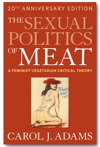
Our featured interviewee for this issue of Geez, Carol J. Adams (see page 54), has several books worth exploring. The Sexual Politics of Meat (1990) makes an important connection between feminism and animal ethics, and The Inner Art of Vegetarianism (2000) draws on mindfulness traditions to sustain and promote compassionate relationships with animals.

Jonathan Franzen’s novel Freedom (2010) grapples with the murky underbelly of conservation politics, among other existential, familial, and political quandaries. When environmentalist and all-around- swell-guy Walter Berglund is given a near-unlimited budget to establish warbler sanctuaries, he finds out that in the U.S. political economy, it’s hard to rescue birds without supporting natural resource extraction and war efforts in the Middle East.
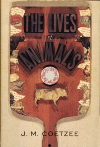
Prize-winning novelist J.M. Coetzee gave two lectures which were published as The Lives of Animals (1999), which includes 47 pages of responses from four academics (three women, one man). Why include so much response? Because the lectures were controversial and maybe even masterful (but who are we to say?). Coetzee delivers a fictional account of an academic giving lectures. Elizabeth Costello, known for literary prowess, abandons academic indulgences and squarely addresses human conduct toward animals. It’s part PETA, part meta.

The troubles of anthropomorphism aside, perhaps the best way into an animal world is to listen to them talk amongst themselves. In the graphic novel Pride of Baghdad (2006), Brian K. Vaughan and Niko Henrichon tell the story of lions who escaped from Baghdad Zoo after a U.S. airstrike in 2003. Based on a true story, it’s colourful, gripping, tragic.
Similarily, King: A Street Story (1999) by John Berger chronicles the pain and chaos of homelessness as told from a canine perspective, offering legitimacy to animal experiences without succumbing to sentimental drivel. Berger is a prolific critic, novelist, and social commentator perhaps best known for his BBC miniseries, Ways of Seeing (1972). His essay Why Look at Animals (1980) is a delightful and compassionate invitation to reimagine power dynamics between humans and animals.
Through a more overtly philosophical lens, Giorgio Agamben’s The Open (2002), and Jacques Derrida’s The Animal That Therefore I am (2008) both perforate the binary that separates humans and animals. They’re heady postmodern tracts, but they lay some important conceptual groundwork for resisting today’s animal industry.
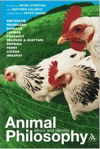
For a broader overview of this type of thought, check out Animal Philosophy: Ethics and Identity (2004) edited by Peter Atterton and Matthew Calarco, a “greatest hits” compilation of continental philosophers who write about animals. Or, for an introduction to the philosophical history of animals, Kelly Oliver’s Animal Lessons: How They Teach Us to Be Human (2009) is most instructive. She has dense but helpful chapters on Heidegger, Agamben, Freud, Kristeva, and more.
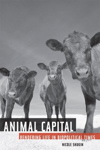
If heady philosophy is not your thing, but you’re concerned about politics and social theory, then Nicole Shukin’s Animal Capital: Rendering Life in Biopolitical Times (2009) is for you. She analyzes, among other things, the exploitation of beavers in magazine and TV advertisements. Unfortunately for the animals, humans are amazingly creative at taking advantage of them for monetary gain.
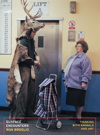
When an artist understands postmodern philosophy and the life experience of your average critter, he or she knows that all we can do is have “surface encounters” with the animals. In Ron Broglio’s book by that title (2011), artists help us see animals less like human objects and more like fellow earthlings with their own experiences. We can’t know what the animals are thinking, and that should be our starting point.
Donna Haraway, author of A Cyborg Manifesto (1985), turns her attention to animals that are neither wild nor productive in The Companion Species Manifesto: Dogs, People, and Significant Otherness (2003). In spite of being a philosopher and scientist, Haraway can’t shake her Catholic roots and finds fresh ways to express her sense of the transcendent. For those willing to slog through technical language and dog-training stories, they won’t be disappointed.

For business-as-usual, but solidly grounded, animal ethics, Peter Singer is not to be missed. His seminal book Animal Liberation (1975) put vegans on the offensive before Tofurky was a thing.

With ever-growing urban populations, human relationships with raccoons, chickens, squirrels, and rats are unique at this time in history. In The Urban Bestiary: Encountering the Everyday Wild (2013), Crow Planet (2009) author Lyanda Lynn Haupt blends science, myth, and memoir to encounter the shadowy boundary between the “urban” and the “everyday wild.”
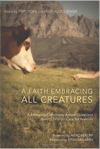
The second instalment of the “Peaceable Kingdom” series, A Faith Embracing All Creatures (2012) edited by Tripp York and Andy Alexis-Baker, brings together a diverse group of authors to discuss “what the Bible says about animals.” There is, of course, no single biblical stance, but the book does a good job of extending theologies of peace and reconciliation to our non-human kin.
On a similar note, we’re happy to recommend Consider the Birds (2013) by Debbie Blue. As nourishment for wanderers in the desert and manifestations of the Holy Spirit, birds are everywhere in the Bible. In this “different kind of field guide,” Debbie Blue offers an avian survey of scripture, with fresh insights on what the pigeon, the vulture, and eight other birds have to say about the spiritual life.
Finally, for those who want to read ahead on the topic of our next issue, decolonization, we can’t recommend more highly the book by Geez guest editor Steve Heinrichs, Buffalo Shout, Salmon Cry: Conversations on Creation, Land Justice, and Life Together (2013). Churches are complicit in the legacy of North America’s colonization, and need to own that history while seeking to make amends. This book is a great place to start.
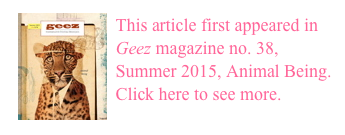

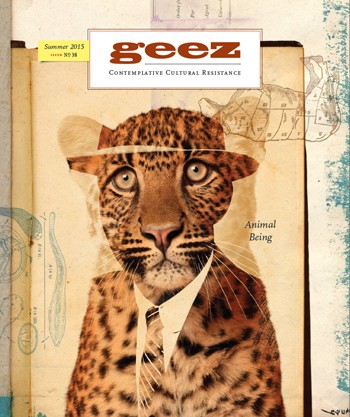

Sorry, comments are closed.